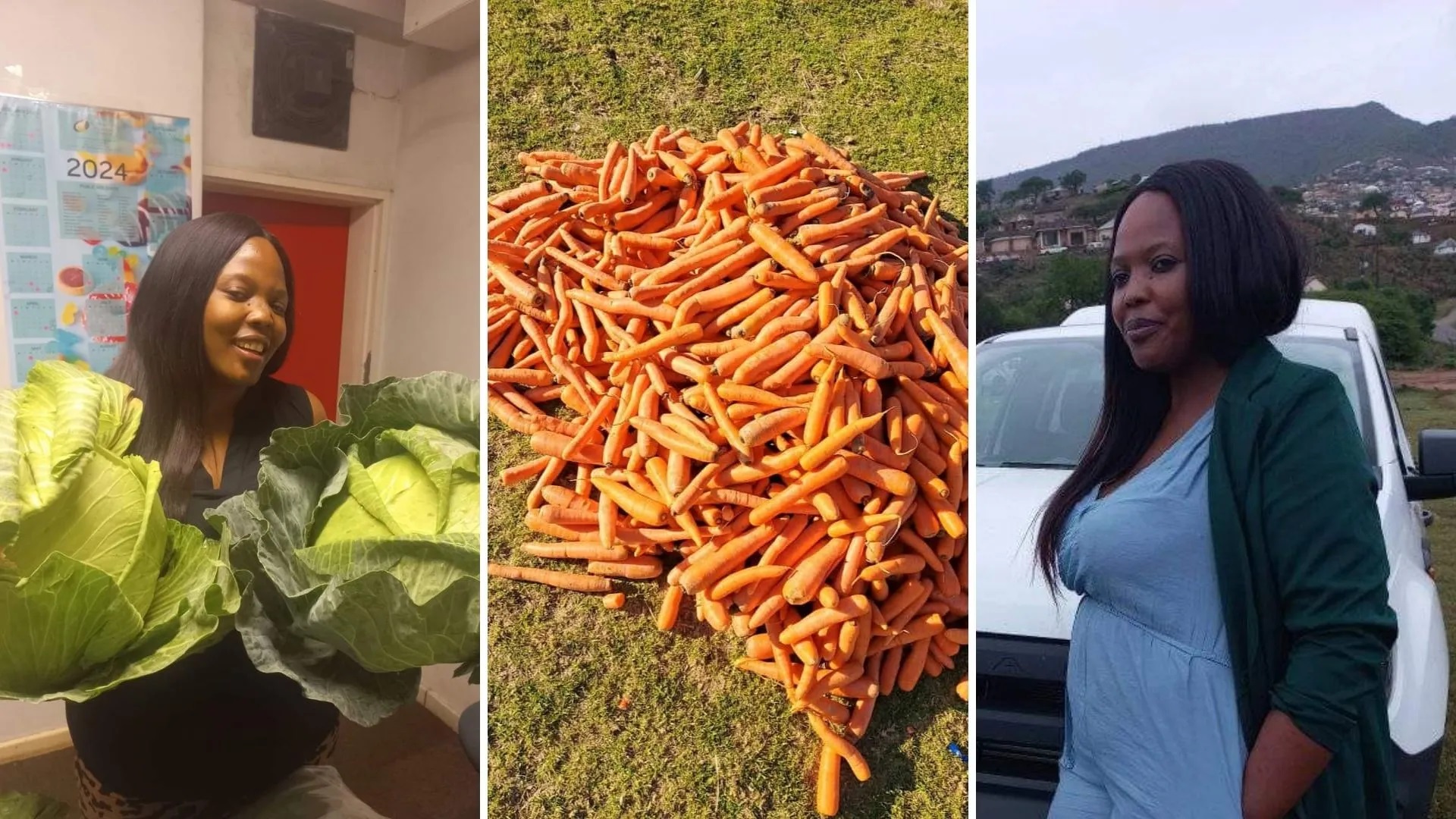Nontobeko Gcwabaza: From Coffee Shop to Cultivating a Farming Legacy

George George Idowu
Nontobeko Gcwabaza, a determined entrepreneur from Savannah Park in Pinetown, KwaZulu-Natal, South Africa, found herself at a crossroad. Though her job at a coffee shop paid the bills, it left her yearning for something more meaningful. This desire led her to reconnect with a passion rooted in her childhood growing food and working the land.
On this present day, she runs Ezamathusi Holdings, a thriving farming business that not only provides fresh produce but also offers farming education to young people in her community.
Farming has been an integral part of Gcwabaza’s life for as long as she can remember. Her grandfather, who farmed over 100 hectares of land, planted the seeds of agricultural knowledge in her at a young age.
However, despite her exposure to farming, she never anticipated that it would become her career, particularly as a black woman in South Africa’s agricultural sector.
Her love for growing crops began in childhood, where she would sneak dry beans from her home and plant them, creating playful farming scenes. This playful interest blossomed into a full-fledged passion as an adult. Even while working full-time at the coffee shop, Gcwabaza would plant crops in her spare time.
A pivotal moment in Gcwabaza’s journey came when she met her mentor, Nolundi Mpulo. Mpulo encouraged her to immerse herself in the farming community, attend events, and learn from others in the field. Through this mentorship, Gcwabaza joined Isakabuli in 2019, a women’s farming initiative focused on planting castor oil trees, known locally as umhlakuva.
“We were planting the castor oil tree, known as umhlakuva,” Gcwabaza recalls. The versatile plant is used for motor oil, perfumes, body lotions, and cosmetics.
She and her team worked closely with the University of Witwatersrand on research related to the plant’s uses. That same year, they launched a cannabis-infused energy drink in Richards Bay and gained experience in livestock farming through a partnership with a farmer in Msinga. Unfortunately, the pandemic halted these projects.
Despite setbacks, Gcwabaza’s determination to succeed in farming remained strong. In 2020, she founded Ezamathusi Holdings, initially operating from her backyard. Today, her business has expanded to a 10-hectare leased farm in Cato Ridge, Durban, where she grows a variety of crops, including tomatoes, carrots, cabbage, potatoes, spinach, sweet potatoes, and chillies.
“We also raise broiler chickens, starting from day-old chicks until they are six weeks old and ready for sale,” Gcwabaza explains. Her broilers are fed a high-protein diet, ensuring their healthy growth for the market.
Gcwabaza initially funded her business using her savings from her coffee shop job and supplemented her income by baking and selling cakes. While the business has since received support from the Presidential Employment Stimulus Initiative (Pesi), she still faces challenges securing additional funding, particularly for agro-processing and farming equipment.
Ezamathusi Holdings has become a vital part of the local economy, supplying fresh produce to informal markets in Savannah Park and surrounding communities such as Klaarwater, Queensburgh, New Germany, and even institutions like the University of KwaZulu-Natal and Durban University of Technology.
Beyond providing produce, Gcwabaza is committed to educating the next generation of farmers. She offers free farming classes to children aged 6 to 12, teaching them the basics of agriculture and inspiring them to consider farming as a career. Her outreach extends to neighbouring areas, including Hammarsdale and Kloof, though she notes that transportation challenges limit her ability to expand further.
Running a farming business is not without its obstacles. Gcwabaza acknowledges that climate change has significantly impacted her operations, often leading to financial losses due to unpredictable weather patterns.
“It’s frustrating to lose money when you have people working for you,” she says. “Regardless of whether you’re making a profit, they still need to be paid.”
Despite the challenges, Gcwabaza finds immense fulfillment in earning a living from her work. She stresses the importance of saving for unforeseen difficulties and continues to plan for the future. One of her main goals is to introduce programmes for high school students, showing them that farming can be a viable career and a path to stable employment.
Nontobeko Gcwabaza’s journey from a coffee shop employee to a successful farmer and entrepreneur is a testament to the power of passion, mentorship, and hard work. Through Ezamathusi Holdings, she is not only growing crops and raising chickens but also sowing the seeds of knowledge in young minds, ensuring that the future of farming in South Africa is bright.
